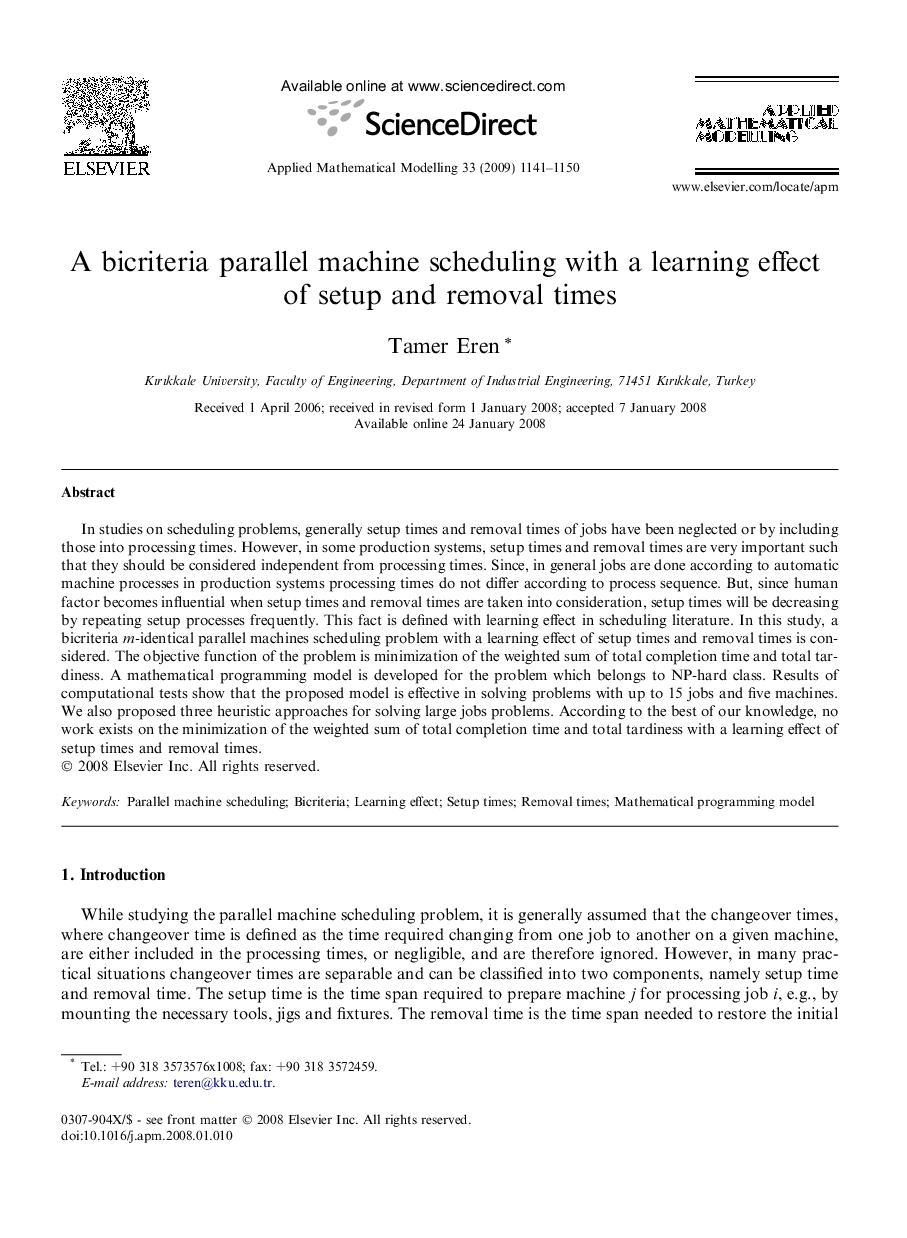| Article ID | Journal | Published Year | Pages | File Type |
|---|---|---|---|---|
| 1706015 | Applied Mathematical Modelling | 2009 | 10 Pages |
In studies on scheduling problems, generally setup times and removal times of jobs have been neglected or by including those into processing times. However, in some production systems, setup times and removal times are very important such that they should be considered independent from processing times. Since, in general jobs are done according to automatic machine processes in production systems processing times do not differ according to process sequence. But, since human factor becomes influential when setup times and removal times are taken into consideration, setup times will be decreasing by repeating setup processes frequently. This fact is defined with learning effect in scheduling literature. In this study, a bicriteria m-identical parallel machines scheduling problem with a learning effect of setup times and removal times is considered. The objective function of the problem is minimization of the weighted sum of total completion time and total tardiness. A mathematical programming model is developed for the problem which belongs to NP-hard class. Results of computational tests show that the proposed model is effective in solving problems with up to 15 jobs and five machines. We also proposed three heuristic approaches for solving large jobs problems. According to the best of our knowledge, no work exists on the minimization of the weighted sum of total completion time and total tardiness with a learning effect of setup times and removal times.
